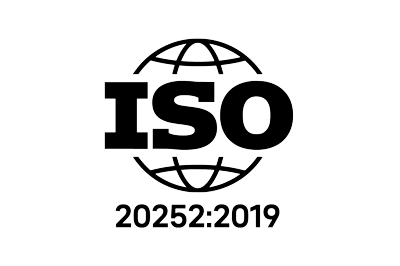The Interview with Dr. Satish Thalla was first published on marktforschung.de in German language.
Dr. Satish Thalla is key account manager for Asia Pacific at AMR Advanced Market Research. He has taught international research at universities around the world: India, Argentina, South Africa and Germany. Today we talk to him about the value of modern market research in a rapidly changing society, and he reveals why an ancient-looking technique could become increasingly relevant in the process.
The interview with Dr. Satish Thalla
Mr. Thalla, a recent study showed that the AI ChatGPT can provide comparable answers to a representative survey of humans. Do we still need traditional market research?
Dr. Satish Thalla: Absolutely! I find it worrying that an industry that is so centrally concerned with people immediately goes into gasps because computer software provides similar answers in some areas. The computer cannot replace the human being. We can give it tasks that are too tedious for us, but if we want to get closer to what’s going on in people’s minds, we have to talk to them. And that can only be done in person.
What do you think of the results of the study?
Dr. Satish Thalla: What was discovered in the aforementioned study is merely a manifestation of ChatGPT. Its experiences are based on all sorts of texts from the Internet. In this sense, it may sometimes represent an average of society – but at other times it will hallucinate and generate answers unverifiable to us without a control group. And even if it does hit an average – which one? At present, probably a Western one.
Also, there will be problems with feedback loops from AI-generated content in the future. In a few years, we could reach a tipping point where more content is uploaded to the Internet that was created by AI, or at least in close collaboration with it, than by humans. And then we would essentially be asking AI about itself.
As an aside, some people are currently using ChatGPT to score open-ended questions, even though this large language model is not trained to do that. It can’t even accurately count words in a text, let alone emotions in open-ended responses. But we will certainly see AI trained to do this in the future – that will greatly speed up the evaluation of studies. But until we get to that point, we continue to trust personal phone calls and human analysis.
But isn’t the telephone outdated? Like the floppy disk or Walkman?
Dr. Satish Thalla: Yes, that’s right. The telephone is even older than the floppy disk and Walkman combined. But that’s precisely why it’s so well established: There are more cell phone contracts in the world than people. Even in regions where the Internet is heavily regulated by the state, people can usually be reached by phone. For example, in Tunisia. So for global studies, the telephone remains the first choice – not AI.
Moreover, the telephone offers significant qualitative advantages over online surveys. The interviewer ensures that the right person answers the questions, the answers are more consistent, and the interviewer can ask open-ended questions to get more information. In addition, respondents are much more appreciative – this can increase long-term loyalty between customers and the company, especially in customer satisfaction surveys.
So: the telephone may seem anachronistic, but in a world where everything is increasingly automated and computer-generated, the face-to-face conversation is becoming more valuable!
What about the future: Do you think the telephone will continue to be relevant?
Dr. Satish Thalla: That’s not an easy question to answer. The phone and its technology will undoubtedly evolve and change. Today, iOS users make calls just as ›seamlessly‹ over Wi-Fi as they do over cellular. It is quite possible that telephone poles will become a thing of the past and that we will soon only make calls via the Internet. But that doesn’t change the value of a face-to-face conversation. Whether it takes place over cellular, 5G or in the metaverse: People are at the center of market research – and will remain so.
So, everything will stay the same?
Dr. Satish Thalla: No. It is questionable to what extent there will still be human interviewers in the future. AI could actually bring about fundamental changes in this area: Humans design a survey. AI makes initial suggestions for a questionnaire. Human experts use these as a basis, optimise and finalise the questionnaire. This is then returned to the AI, which calls all the people and talks to them automatically using voice generation.
Similar to the human interviewer, the AI could provide assistance, respond to follow-up questions, and end the conversation with a friendly impression. Later, the call transcripts would be reviewed by humans and the answers checked for consistency.
So, more of a collaboration between AI and humans?
Dr. Satish Thalla: There is no other way. The AI does not want anything. It has no ambitions. Input in, output out. In between, complex probability calculation. But humans will always have to lead and control – that’s already happening, and it’s an exciting discussion.
What do you think of the demand to pause AI research?
Dr. Satish Thalla: I don’t think that will help much. Not all countries will comply with it anyway. State institutions, intelligence agencies, etc. would then have an advantage over the general public. But the debate still needs to be conducted in parallel, and I also believe that binding rules for AI need to be established.
So, we can agree that things will remain exciting! Thank you very much for the conversation, Dr. Thalla.
About AMR Advanced Market Research:
AMR Advanced Market Research GmbH is a market research company based in Düsseldorf. Independent and owner-managed, the company has been conducting research worldwide since 1981. It specialises in CATI (Computer Assisted Telephone Interviewing) as a research method and, in collaboration with moweb research GmbH, offers mixed-mode studies that combine telephone and online surveys.


















